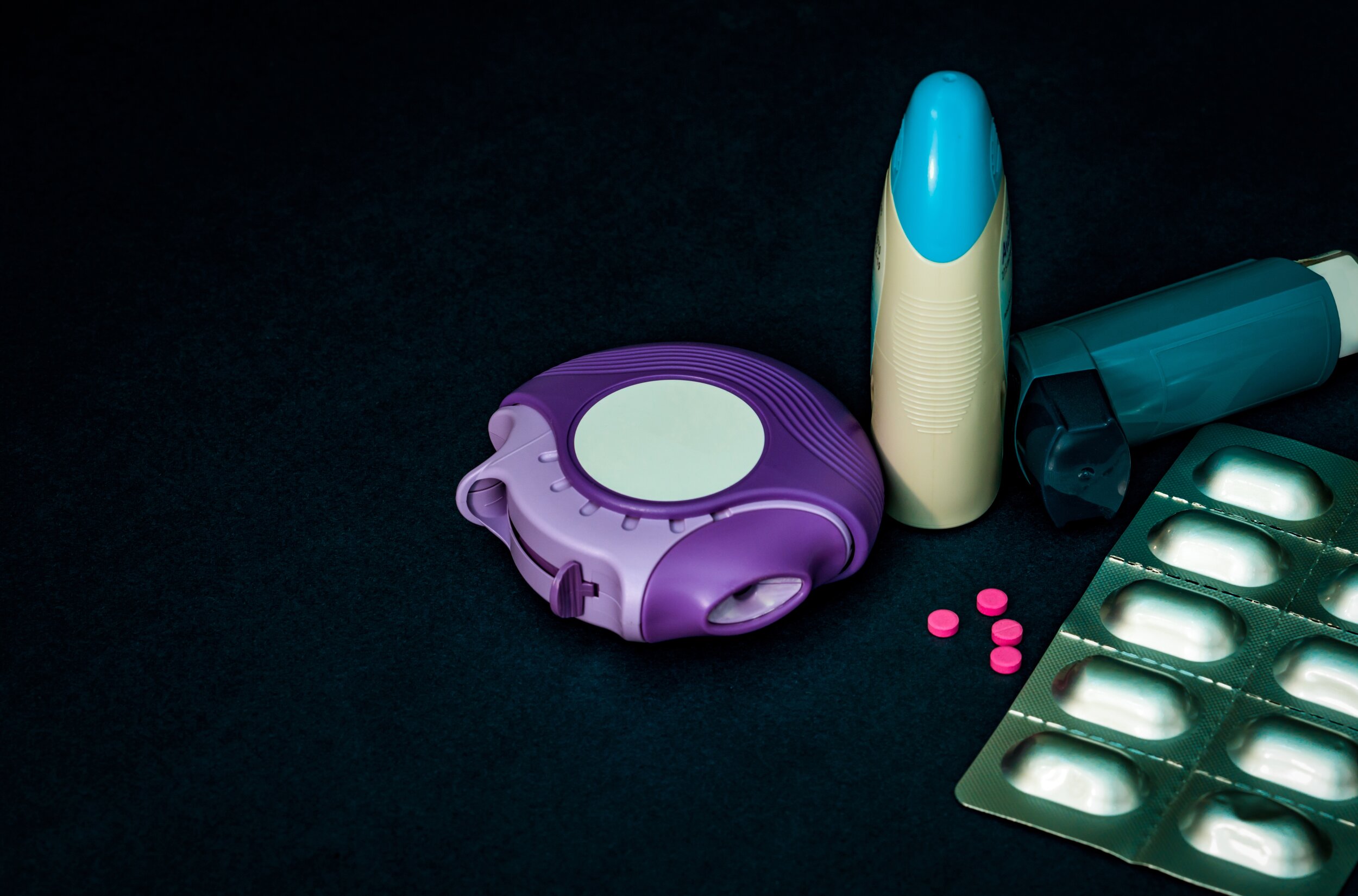
Treating Asthma
Asthma treatment can vary from inhalers to oral medications, to biologics, to drugs delivered in a nebulizer or breathing machine.
Get a better understanding of how asthma medications work, and learn about natural asthma remedies—as well as ways to monitor your breathing at home.
Early and aggressive asthma treatment is key to relieving symptoms and preventing asthma attacks.
The most effective asthma treatments offer short-term relief and long-term control. Understanding asthma treatments will enable us to work together to successfully manage your asthma symptoms.
Asthma Medications
Steroids and Anti-Inflammatory Drugs
Inhaled steroids, are the most important treatment for most people with asthma. They prevent asthma attacks and reduce swelling and mucus production in the airways. The treatment leaves the airways less sensitive making them less reactive to the asthma triggers that cause asthma symptoms.
Bronchodilators relax the muscles that tighten around the airways, opening up the airways. Short-acting bronchodilator inhalers, also known as rescue inhalers, are used when quick relief is required to alleviate the cough, wheeze, chest tightness, and shortness of breath caused by asthma.
A Bronchodilator can be used before exercise for people with exercise-induced asthma.
Long-acting bronchodilators can be used with inhaled steroids or corticosteroids for control of asthma symptoms, but never used alone as long-term therapy for asthma.
Rescue Inhalers should not be used daily in the routine treatment of asthma. If you are using a Rescue Inhaler more than twice a week, then your asthma is not properly controlled.
Asthma Inhalers
An asthma inhaler is a handheld device that delivers medication faster and with fewer side effects directly into your lungs.
Working a bit like a spray can, HFAs (Hydrofluoroalkane) or Meter Dose Inhalers provide medication through a small handheld aerosol canister. Pushing the inhaler sprays the medicine so that you simply breathe it in.
Dry powder inhalers (DPIs) can be hard to use during an asthma attack because they require you to breathe in quickly and deeply when you can’t fully catch a deep breath.
Nebulizers are a good choice for children or people with severe asthma who may not be able to use an HFA or DPI properly. A nebulizer delivers medication through a mouthpiece or mask while you just breathe normally, no deep, quick breaths needed.
What Drugs Are In the Inhaler?
Inhalers contain steroids, like prednisone, to treat inflammation. Others contain a bronchodilator to open up your airways. Some are combination inhalers, containing both drugs.
Anti-inflammatory asthma inhalers are prescribed to prevent asthma attacks by reducing swelling and mucus in your airways. Medications in this type of inhalers are Steroids (Aerospan, Alvesco, Asmanex, Flovent, Pulmicort, and Qvar) and Mast cell stabilizers (cromolyn sodium)
Contact Dr. Lubitz Today and Arrange a Consultation
If your asthma or allergies are getting you down, don’t suffer needlessly. Same-day appointments are available. We have multiple offices throughout Manhattan.
